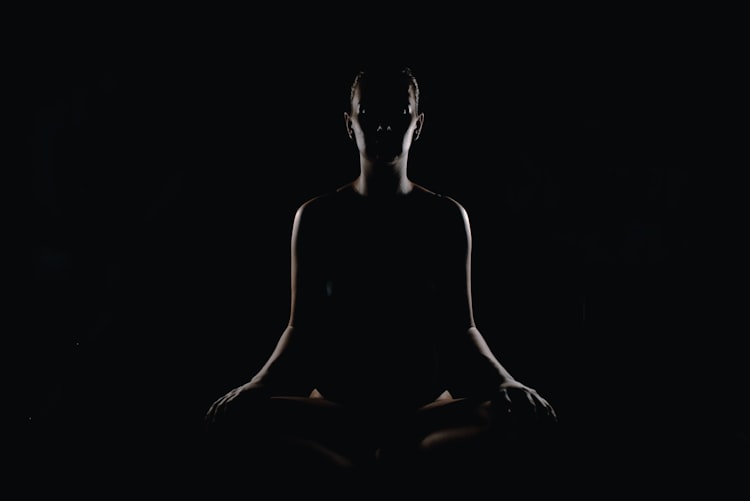Step into the Gray - #toritalk

Some things are black and white.
Like sure, stealing from your friends is bad.
Asking for and honoring their consent is good.
We can agree on that. That's pretty b&w.
Most things aren’t black & white, though.
What qualifies as “rude” versus “taking up space”?
Or “mean” versus “honest about a hard truth”?
When is it okay to lie?
Is omission lying?
What qualifies as cheating?
The list goes on.
A few years ago I'd catch an attitude about these debates.
Why should we even need to ask these questions?
Right is right. Wrong is wrong. Period.
I hated gray areas.
Then they gave me freedom.
Learning to live in the gray is one of the best things I've ever done for myself.
But before I could, I had to see my black & white thinking for what it was.
Living in b&w is (often) a trauma response.
Or it can come as a sort of default setting for neurodivergence (like autism).
Both of which I live with.
So it's no surprise that I'd developed a sort of binary measure for how to view people and the world.
Right or Wrong.
Good or Bad.
It felt clear. It felt logical. It felt reliable.
So naturally, I thought it was keeping me safe, even though I always felt threatened.
I thought it was protecting me, even though I was constantly hurting.
I thought it made me a better person, even though I was routinely judging people, calling them out, calling them wrong, holding grudges, stirring pots, and causing harm.
I thought it was the logical solution, even though it has a terrible success rate in conflict let's be real.
Still, I thought it was the "right" thing.
I didn't think to ask if it was a healthy, connected, effective or happy thing.
Which it never was. Any of those things.
The issue with b&w thinking is that as well-meaning as it is, it has a tendency to cause more harm than good.
It tends toward self-righteousness and a tender nervous system that sees basic differences as threats (and reacts accordingly - in my case, usually with a fight response).
On one hand, b&w thinking is a great sign of a stable and committed moral compass.
There's consistency, there. Reliability, there. Clarity, there.
You get what you see.
On the other, it's a sign of rigid closed-mindedness and defensiveness.
There's loneliness, there.
There's judgment, there.
Fear, there.
And ultimately, a painful and disconnected internal landscape, there.
Things like trust, resolve, forgiveness, curiosity, open-mindedness, creative problem solving, and inclusivity - all starve when b&w thinking is in the room.
Things like self-righteousness, assumptions, blame, anger, resentment, grudges, judgment, skepticism, harmful exclusivity, and bullying?
Those things thrive with b&w thinking.
And as difficult as I know it is to see it any other way, I'm living proof that we don't have to get stuck there.
This is workable.
And personally, I think we can all find beauty in the gray.
If only we understood what it could do for us, and how to practice it.
Here's the introduction:
Stepping into the grey is about practicing Both/And.
(Shout out to Summer Schultz for giving me the name for this).
The gray is about understanding that one truth doesn't have to invalidate another.
It's about allowing two truths to exist in the same space, at the same time, as valid and equal.
It's about considering the fact that maybe your perspective is absolutely valid, and maybe theirs is valid too.
Not "right". No "wrong". Just different.
And getting curious about how they can coexist, instead of jumping to the conclusion yours is automatically "better than" someone else's, or vice versa.
Some Examples:
Maybe we can hold someone accountable for causing harm and have some grace for their intentions at the same time.
Maybe they can be an empath and be inherently selfish and have some work to do there.
Maybe you can have a strong moral compass with the best intentions, and be unconsciously weaponizing that moral compass to cause more harm than good.
Maybe your moral compass is protecting you and hurting you at the same time.
Maybe they don't like this one thing about you and that hurts your feelings, and you're still one of their favorite people who they genuinely respect, love, and enjoy.
Maybe you are feeling hurt. And, maybe they really didn't want to hurt you and really do care that they did.
Maybe you believe they're sorry and deserve forgiveness, and you still have some anger to work through. Maybe that's okay.
Maybe they're just trying to figure out how to love you while loving themselves at the same time.
Maybe you're a little hard on people and love them, too.
The list goes on.
When you step into the gray the world becomes softer.
Safer.
Your viewpoint expands outside of your personal experience and opinions.
The world becomes a remarkably transparent space.
You stop asking "wtf were they thinking" - because now you can actually hear and accept their answers as true & valid for them when they tell you.
You get more clarity. More empathy.
You practice forgiveness not just with others but also more with yourself.
With that clarity and empathy, you're able to respond intentionally, instead of reacting blindly.
You have more options for how to navigate situations. Options that honor your own dignity, and theirs.
You're able to repair more problems in your relationships.
You're able to see the wounded inner child in the people around you, instead of only seeing them as a fucked-up adults.
You're able to love them and love yourself, at the same time.
And you're able to trust them (and your judgment of them) more fully.
And you start receiving allllll of that energy in return.
Find some both/and scenarios to work on this month.
Welcome to the Gray.
Tori
Also See:



Member discussion